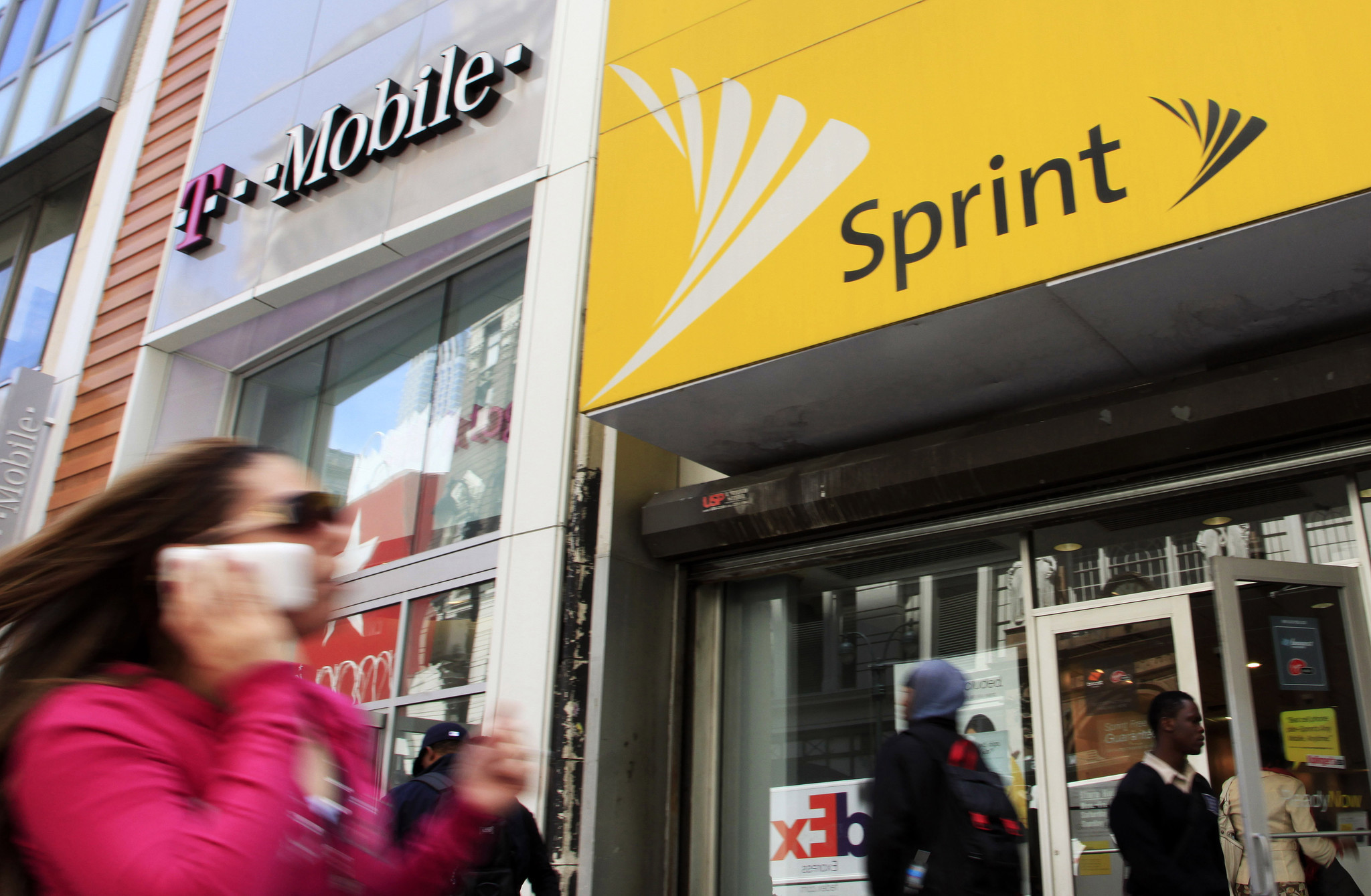On Sunday, T-Mobile and Sprint announced their plans to merge and become one T-Mobile in a $26 billion deal.
The mobile carriers’ merger will bring their subscriber base to around 70 million, putting it in third place behind Verizon’s 111 million subscribers and AT&T’s 78 million. This merge also reduces the number of mobile carriers in the United States to three.
John Legere, T-Mobile’s CEO, will be the head of the merged company, which hopes to hire thousands of new workers. On a conference call, he said the firm will deliver “the highest capacity network in U.S. history,” with a nationwide network that will put the United States in the leading position with 5G connectivity.
However, an Analysys Mason report points to China and South Korea as the leaders in 5G.
The report’s press release says that “China holds a narrow lead in overall 5G readiness ahead of South Korea and the United States.” This lead is due to a combination of government policies and momentum from industry.
According to Andrew Schwartzman, a professor at Georgetown Law and an attorney specializing in telecommunications, the announcement from T-Mobile and Sprint may be a bit optimistic.
In 2014, T-Mobile and Sprint discussed a merger but stopped talks due to concerns over the regulatory challenges under the Obama administration. Schwartzman said the deal was blocked because regulators believed the wireless market could handle four players. Plus the competition, he says, would benefit customers.
“It will be difficult to convince the Justice Department that circumstances have changed so much that it’s necessary to go down to three providers,” Schwartzman continued. “That’s the major hurdle that has to be confronted.” However, T-Mobile and Sprint think they will have a better shot during the Trump administration.
T-Mobile and Sprint’s plans to merge has also been met with surprise. Legere frequently took to Twitter to criticize Sprint over the years:
Oh @Sprint – you really #FruckedUp that imitation of our #uncarrier move! #ContractFreedom for all
— John Legere (@JohnLegere) April 4, 2014
Did we just witness beginning of the end for @sprint? $2.5B to cut, laying people off, now price cuts? The countdown clock makes sense now!
— John Legere (@JohnLegere) November 18, 2015
Omg, @Sprint, this ad is hilarious!!! Got enough legalese in it?? #warning pic.twitter.com/wqPlIcP6nV
— John Legere (@JohnLegere) September 30, 2016
Though it is too soon to tell what this merge means for consumers, Legere said the merger could reduce prices for not only Sprint and T-Mobile customers, but also AT&T, Comcast and Verizon customers.
He believes these providers’ customers could see price cuts as the companies respond to T-Mobile and Sprint’s merge. However, Blair Levin, a policy adviser for New Street Research, says that a reduction in “competition could lead to higher prices.”
Until the deal receives regulatory approval, a new roaming agreement gives current Sprint customers access to T-Mobile’s service where Sprint is not available. Should the merger receive approval, Sprint customers will gradually migrate to T-Mobile’s network, which could take up to three years.
Also, the merger will give T-Mobile a larger television audience. The company bought the small cable company Layer3 in 2017. The impending launch of their streaming product will hopefully give T-Mobile a chance to gain more subscribers with a built-in audience.
“All content is going to the Internet, and all Internet is being viewed on mobile,” said Legere.
Time will tell if the Justice Department will approve the merger and how it will fare for T-Mobile and Sprint customers if it is approved, as well as other customers under competing companies.
















